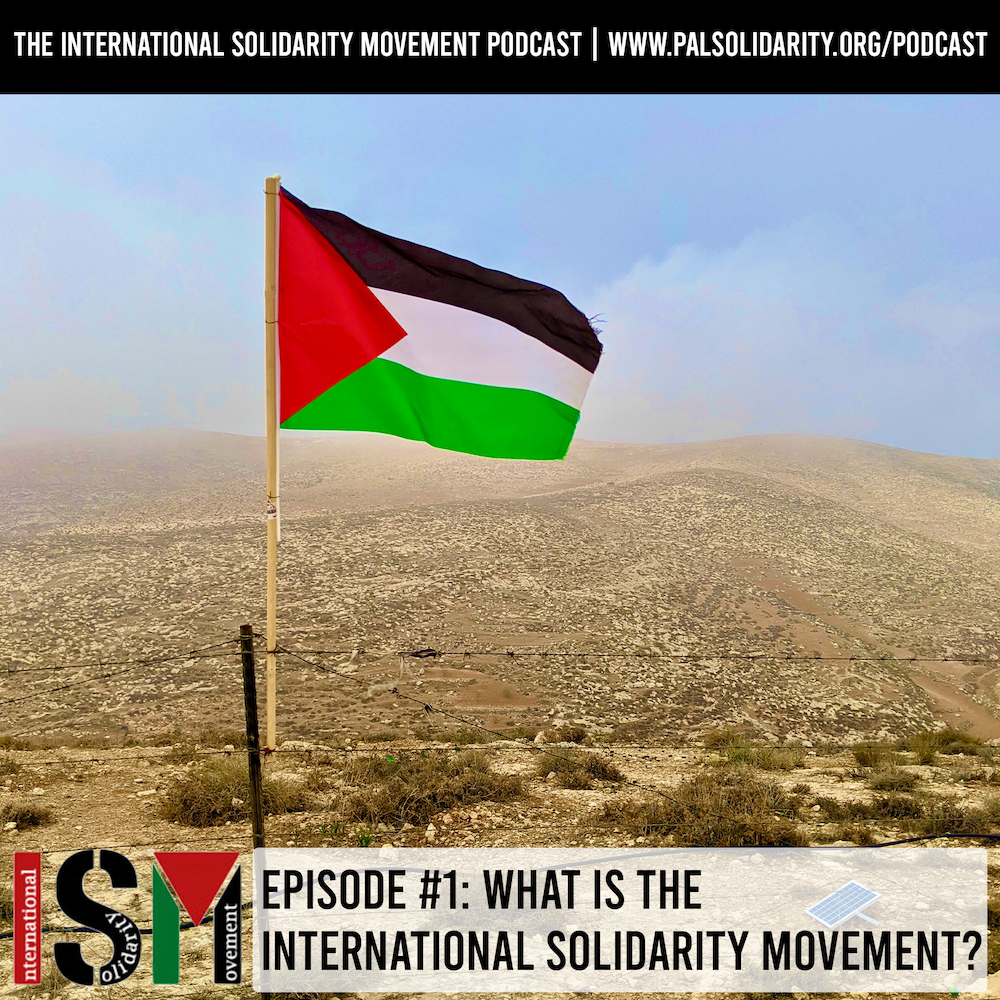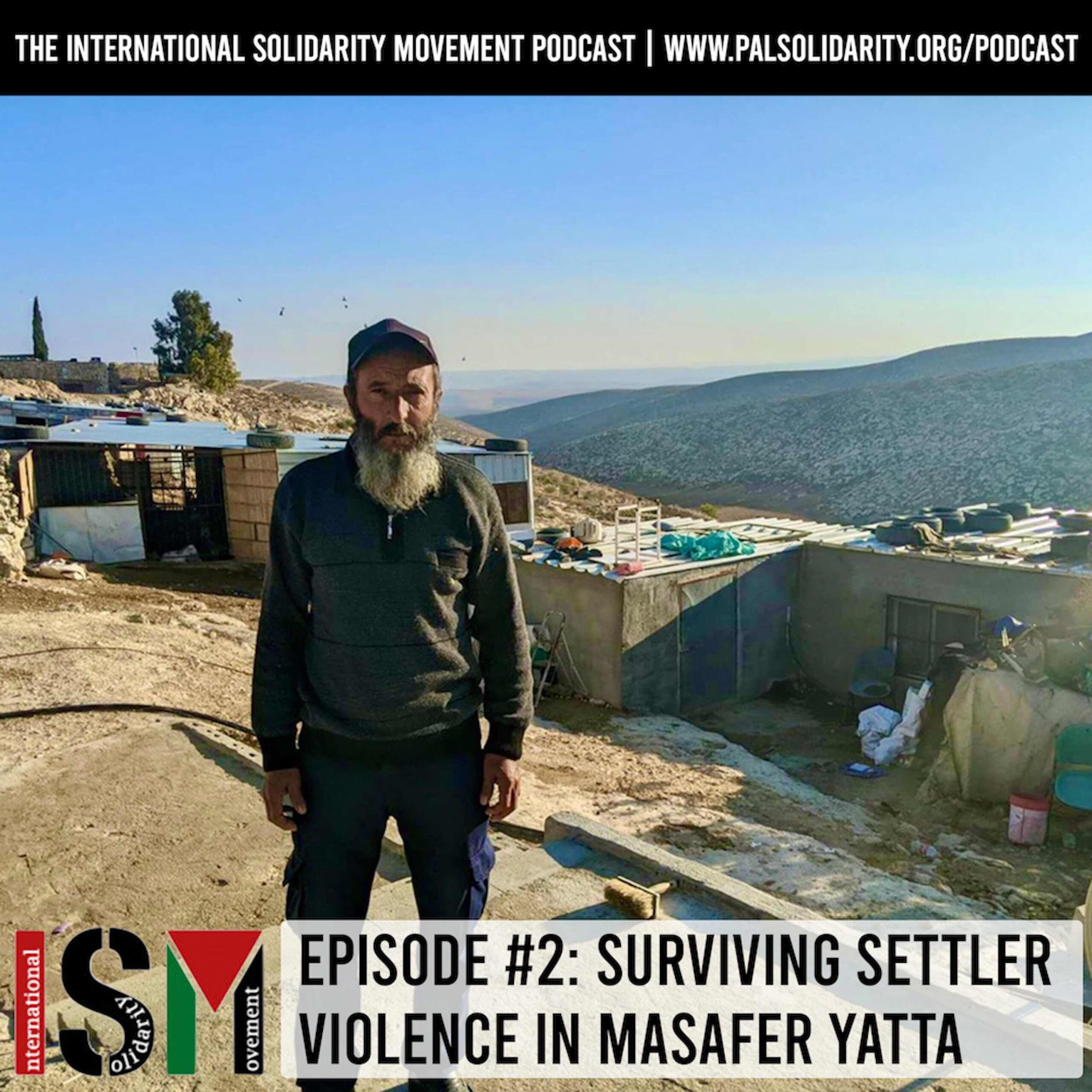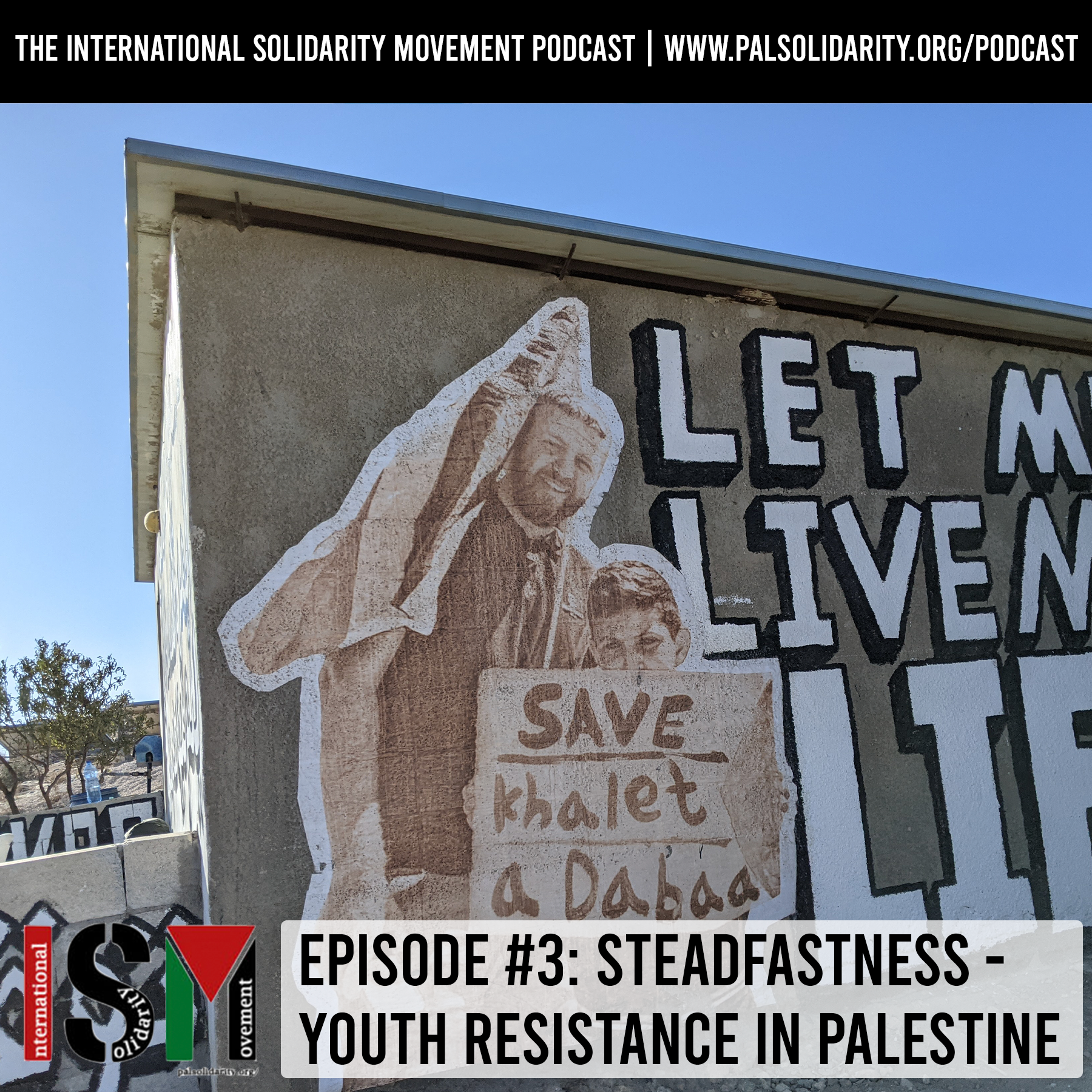Category: Reports
-
The International Solidarity Movement podcast episode one: An introduction to ISM
In this first episode of the International Solidarity Movement podcast, we interview Abdel Karim – who has been with the movement since the early 2000s. The ISM is a grassroots Palestinian-led organisation, with principles of non-violence , non-hierarchy, and anti oppression. It makes all of its decisions by consensus. Over the last 20 years it…
-
The International Solidarity Movement podcast episode two: Surviving settler violence in Masafer Yatta
In episode two of our podcast we speak to Gassim Hamad Tahan from the village of Mufagara, in Masafer Yatta, in the South Hebron Hills. Gassim told us how the experience he had growing up is different to those of his children and grandchildren, and about his dedication to steadfastly staying on the land, despite…
-
The International Solidarity Movement podcast episode three: Steadfastness – Youth Resistance in Palestine
In this third episode of the ISM podcast our guest is Sami Hurreini, who is a really inspiring youth organiser from At-Tuwani in the South Hebron Hills. He’s part of a group called Youth of Sumud. Sumud is an Arabic word meaning steadfastness, and its a central concept in the Palestinian popular resistance to the…



